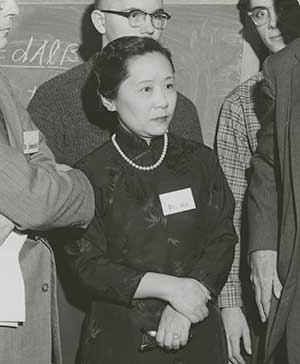Evaluating a Decade of PhysicsQuest
By Leah Poffenberger
For the past 10 years, middle school classrooms all across the country have had a chance to learn physics with hands-on demos thanks to the APS PhysicsQuest program. PhysicsQuest distributes kits packed with experiment demos, comic books, and a teacher’s guide in hopes of inspiring students to be more interested in physics. In the 2018-2019 school year alone, PhysicsQuest reached nearly 184,000 students taught by more than 5,000 teachers.
This year, APS commissioned an evaluation report of the PhysicsQuest program to assess its impact and usefulness to teachers. And the results are clear: Teachers enjoy using PhysicsQuest kits and believe they positively impact their students.
“I think it's a good idea to evaluate successful programs once in a while, and 10 years in to PhysicsQuest seemed like good timing,” says James Roche, Outreach Programs Manager at APS. “We were interested in figuring out exactly how teachers used the kits in their classrooms in order to tailor our work toward their goals.”
A sampling of PhysicsQuest users (376 teachers and 351 students) was surveyed for the evaluation. A subset of teachers also participated in a focus group to provide additional insight into how the PhysicsQuest kits fit into their teaching.
Each PhysicsQuest kit contains all the necessary components for small groups of students to conduct four different experiments related to an educational comic book, also included in the kit. The kits also come with a teacher’s guide to assist in explaining the concepts conveyed by each experiment. Teachers in the focus groups consistently pointed out the value of receiving all the necessary resources for a hands-on lesson in one place.
Overall, teacher responses to the evaluation were positive, with 94 percent of respondents reporting that PhysicsQuest had a positive impact on their students’ interest in physics and their enjoyment of learning physics. Teachers also overwhelmingly reported that they would recommend the kits to other teachers. A large number of teachers—85 percent—also reported that PhysicsQuest activities align well with their curriculum.
“PhysicsQuest teaches kids in an easier way than if I had just handed them a piece of paper and taught them myself,” said one PhysicsQuest user. “I have a new way to teach them and help them learn faster and better than I think I have in the past.”
While teachers were largely positive about their experience using PhysicsQuest kits, they did offer suggestions to improve the learning experience for their students. Kits have long been accompanied by the Spectra comics, which follow the adventures of a laser superhero, but teachers indicate that these comics aren’t necessarily integral to their students’ experience.
“We found that teachers didn't have the time to tie the lessons into the comic book's story but separating these two projects (PhysicsQuest and Spectra comics) will help us deliver the kits faster in the future and drive down our printing and shipping costs,” says Roche. “It will also allow us to take more liberty with the comic's story.”
This year’s PhysicsQuest kits are taking teacher suggestions into account and returning to an earlier PhysicsQuest model that included comic books based on real physicists like Nikola Tesla and Marie Curie. Students will learn about real life physics superhero Chien-Shiung Wu and her contributions to physics with four new experiments.
An additional comparison showed that students using the kits were more likely to report wanting to be a physicist than those who did not. This is another reason to return to featuring real-life physicists: One teacher reported that featuring Marie Curie inspired her students. “Quite a few of the girls wanted to become Marie Curie that year,” she said.
After a decade of PhysicsQuest, hearing feedback from teachers is integral in continuing the program for future generations of students.
“We're looking to expand the program in many ways: We're getting a lot of great feedback from teachers suggesting topics for activities and are going to be highlighting the work of some really important unsung physicists along the way,” says Roche. “Middle school is a crucial time for children to be engaged with physics, so we make sure the activities are accessible to middle schoolers and above."

This year’s PhysicsQuest kits focus on the achievements of physicist Chien-Shiung Wu.
To request a PhysicsQuest kit or download previous PhysicsQuest manuals, please visit the PhysicsQuest page.
©1995 - 2024, AMERICAN PHYSICAL SOCIETY
APS encourages the redistribution of the materials included in this newspaper provided that attribution to the source is noted and the materials are not truncated or changed.
Editor: David Voss
Staff Science Writer: Leah Poffenberger
Contributing Correspondent: Alaina G. Levine
Publication Designer and Production: Nancy Bennett-Karasik
November 2019 (Volume 28, Number 10)
Articles in this Issue

